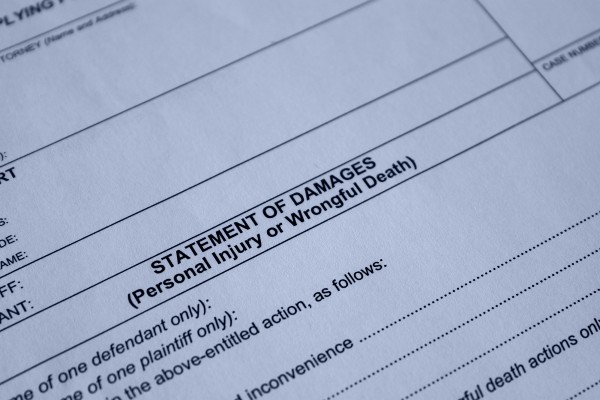
If you lost a loved one in a pedestrian versus automobile accident, you may wonder what your options are for filing a wrongful death case. Wrongful death case rules vary by state, but in the state of Washington, you can only seek compensation through a wrongful death case if that case would have qualified as a personal injury in the first place.
Wrongful death claims are difficult, and just because someone dies in an accident does not mean you have someone you can hold accountable for a wrongful death lawsuit. Other times, the person that caused the accident is not the person financially responsible. That is why it is important that you speak with an attorney. An attorney can review the facts of the case, the cause of the accident, and then help determine who the financially responsible party is.
The Process of Filing a Wrongful Death Claim in Washington
All states vary in their rules and procedures. Some states are more lenient in who can request compensation, while others are not. Therefore, today we focus solely on those laws in Washington. If you are from another state, you may want to consult with an attorney in your state. If, however, the accident that caused your loved one’s death occurred in the state, you do have the right to file a claim here.
Are You within the Statute of Limitations?
In the state of Washington, you only have three years to file a wrongful death claim. If you file even a day past that three-year window, the court will dismiss the case. Even though you have three years, which might seem like a long time, the longer you wait, the harder it will be to get maximum compensation in your case.
As time goes by, the evidence goes missing or gets destroyed, witnesses cannot remember details from the scene, and it might be hard to even find witnesses after a few years if they have relocated.
Does the Case Qualify as a Wrongful Death Case?
If you are within the three-year window, the next question is whether you have a case that qualifies as a wrongful death under the statute.
If the death was caused by the wrongful act of another, then you should have a case. The best way to measure that would be by comparing it to a personal injury lawsuit. If your loved one had not died in the accident, would they have grounds to file an injury lawsuit against the defendant? Was the defendant’s negligent, malicious, reckless, or purposeful actions the cause of the incident?
If so, then you most likely have a claim.
Wrongful death cases are still civil lawsuits – just like personal injury claims. However, when you are dealing with a pedestrian versus motor vehicle accident, there could be a criminal case going as well. The criminal case is not the same as the civil case – they are two different courts, juries, and judges. Also, the outcome of one will not impact the other. That said, if the person was found guilty in their criminal case, that can be used in your civil case. Even if they are found innocent in the criminal case, you may still win your civil case.
The reason for this is the level of proof required to secure a conviction. In criminal courts, you must prove beyond a reasonable doubt that someone is guilty, while in civil claims, you just prove using a preponderance of the evidence. That means the side with the most convincing evidence will succeed in their case, and the jurors do not have to believe that the defendant caused that death beyond a reasonable doubt.
Are You One of the Approved Family Members?
The state limits who can file a wrongful death claim to specific parties. These are the only parties that may file a claim, which include a:
- Personal Representative – If you are a personal representative of the estate, such as the administrator or executor, then you can file a claim on the estate’s behalf. You would be representing all beneficiaries that are listed as heirs to the estate, and then the compensation awarded would pay any remaining debts from the accident (such as outstanding medical bills) and compensation divided to heirs based on priority.
- Spouse or Registered Domestic Partner – The spouse or partner of the deceased can also file the claim against the at-fault party. As a domestic partner, you must be state registered to do so. Simply living together will not qualify you for filing a claim.
- Child, Children, or Stepchild of the Deceased – Adult children, including stepchildren, can file a claim on behalf of their deceased parent. Typically, this only occurs when the other spouse is deceased.
- Parents of a Child – If the deceased pedestrian was a minor, then parents can file a claim on the child’s behalf. However, the statute is noticeably clear that, in order to file a claim, a parent must prove that they regularly contribute to the child to file that lawsuit. For example, an estranged parent that does not pay child support or see that child would not qualify, but the primary caretaking parent would.
Hire an Attorney with Experience Handling Wrongful Death Claims
 Filing a wrongful death claim also involves filing numerous documents with the court, notifying the proper parties, and presenting motions. A family mourning the loss of their loved one cannot possibly do this alone. There are statutes, ever-changing rules, and nuances that only an attorney can stay up to date on.
Filing a wrongful death claim also involves filing numerous documents with the court, notifying the proper parties, and presenting motions. A family mourning the loss of their loved one cannot possibly do this alone. There are statutes, ever-changing rules, and nuances that only an attorney can stay up to date on.
The best step you can take next is to hire a local attorney who will serve as your advocate. They know the laws in Washington, know how to succeed at winning compensation, and they will serve as the voice of your loved one and your entire family.
The team at Brett McCandlis Brown & Conner, PLLC can help. We know how painful it is to lose a loved one, and we have helped countless families just like yours get the compensation they deserve. Call us today to schedule a no-obligation consultation or contact us online with your questions.


